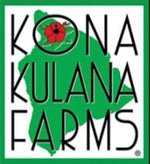Biodynamic agriculture emerged in the 1920s from the philosophies of scientist Rudolf Steiner. He combined methods of organic, ecological farming with the synergistic properties of raising the land as an interconnected working organism. The diverse framework of biodynamics encourages the prosperity of every living organism, including soil, livestock, produce, weeds, herbs, insects, trees and more.
In this article, we will dive deeper into biodynamic farming, what it is and how it positively impacts the farming industry.
What is Biodynamic Farming?
Biodynamic farming is greatly curated to the unique ecosystem of an area. The laws of biodynamics can be used wherever food is grown. A biodynamic farmer will nurture all elements of their land in a holistic way, encouraging the farm to work in unity towards mutual livelihood.
Instead of controlling the land, a biodynamic farmer listens and adapts to the land’s needs. Biodynamic farming closely mimics nature’s organic ecosystem and strives to minimize outside interference from practitioners and farmers. The principles of this farming style encourage biodiversity and strong coexistence between plants and animals.
The Benefits of Biodynamics in the Farming Industry
Enhanced Biodiversity and Nutrient-Dense Plant Life Biodynamic farms have a wide array of biodiversity, which means the ecosystem is thriving with copious life forms from plants to animals to microorganisms. The natural health of the soil cultivates nutrient-dense crops that are rich in microorganisms. This is not possible with typical chemical or hydroponic growing methods.
Biodiverse Compost Enriches the Land and Holistic Cycle of Nature Biodynamic composts are fortified with natural herbs that benefit the plants and microorganisms growing on the land. Biodynamic farming mimics the holistic cycle of nature by giving back to the land, reducing wastage and harmful chemicals that destroy ecosystems. This process has a domino effect on every living being alive on the farm or garden.

Restoration of the Natural Balance Between Plants and Animals Typical farming practices usually focus on livestock or produce which leads to an imbalance in the ecosystem. Biodynamic farming encourages the relationship between both plants and animals, respecting them as a symbiotic unit. By restoring this natural balance, every element of the farm is able to thrive instead of just survive.
Improved Resiliency Against Pests and Diseases Vegetation grown on biodynamic farms has been shown to have enhanced resistance to pests, without the addition of chemicals and foreign substances. If pests or disease outbreak on the land, biodynamic farmers work to understand the deeper problem and provide holistic solutions. Consequently, all living organisms are encouraged to become adaptable to their natural environment.
How Biodynamic Farming Impacts Coffee Production
Biodynamic farming maintains a high standard of plant care and ecological techniques. Coffee beans are sourced from the seed of the Coffea plant, when grown in a biodynamic environment, customers are able to enjoy an aromatic, full-bodied flavor in every cup.
Since the plants are sustainably grown and preserved in a natural, organic environment they create a rich coffee bean that can’t be produced with traditional agricultural processing.
This is the same production style we use here at Buddha’s Cup to create estate grown 100% Kona coffee. All of our coffee plants are raised in a rich bio-diverse environment without pesticides to ensure the best product for the planet and our customers.
You Might Like This: Is Kona The Best Hawaiian Coffee?
Biodynamic Farming Encourages Abundance and Prosperity
Biodynamic farming helps farmers and consumers develop a unique connection to the land. Instead of looking at produce or livestock as profit, there’s a deeper understanding of nature’s holistic rhythm. In turn, this respect and adoration preserve the health of the ecosystem.
All products that come out of biodynamic environments are richer, healthier and possess full-bodied flavors. This is a wholesome representation of the true power of nature when it’s cared for organically and with longevity in mind.
Enjoy the robust flavors of pesticide-free biodynamic coffee produced right here at Buddha’s Cup. We’re committed to caring for our environment, customers and the delicacy of fine coffee and tea. Our award-winning 100% Kona Coffee is available in a variety of flavors and roasts guaranteed to please your tastebuds.













